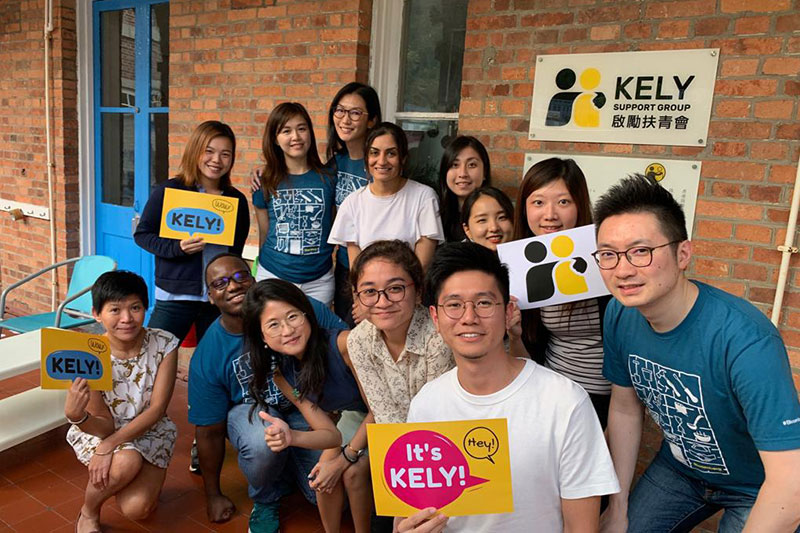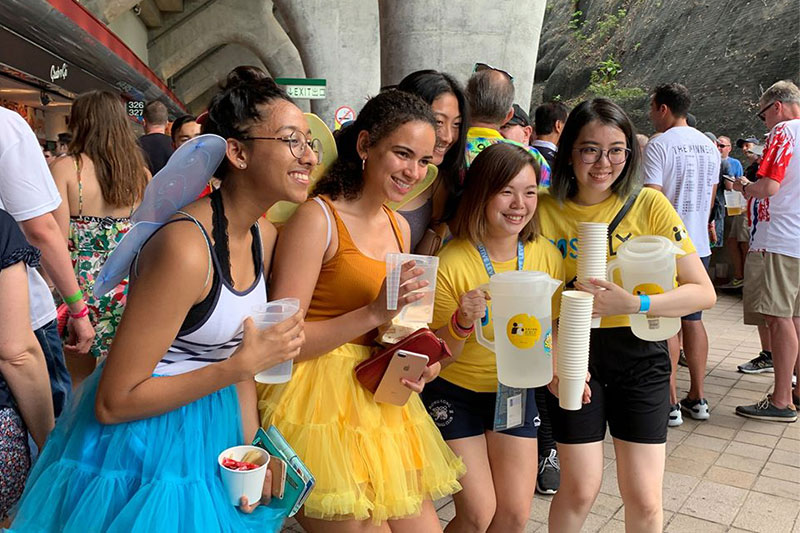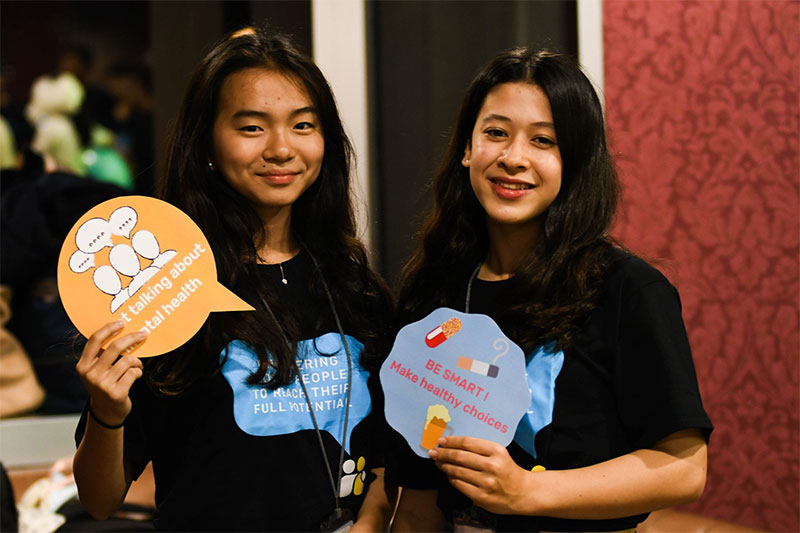KELY Support Group is a non-profit organisation on a mission to destigmatise mental health in Hong Kong. KELY Programme Manager Cindy Ng tells Hive Life how they’re helping the city’s youth.
In just the last year, Hong Kong has experienced political chaos, civil tension, violent unrest, a global pandemic and a subsequent recession. Given all the ongoing discord, it’s no wonder that more and more Hong Kongers are said to be struggling with their mental health, with a third of adults reporting symptoms of PTSD, according to a University of Hong Kong survey.
The Special Administrative Region has a well-documented history of pervasive mental health issues among students and children stemming, in part, from the city’s strong emphasis on academic achievement. Looking to change that narrative is KELY Support Group, a non-profit organisation that provides support to Hong Kong youths with a special focus on mental health and well-being, drug and alcohol awareness, as well as positive youth development. With numerous programmes, resources, and workshops in place, KELY endeavours to get parents, educators, and students on the same page when it comes to emotional vulnerability and openness. Cindy Ng, Programme Manager from KELY Support Group, tells Hive Life what it’s been like for Hong Kong’s youths in the last year and what needs to be done to tackle mental health issues among adolescents.
What is KELY Support Group?
KELY is a youth organisation that works with young people aged 14 to 24. Our mission is to empower youths to reach their full potential by equipping them with the life skills and opportunities to not only help themselves but their peers and those around them too. Peer support is one of our main focuses, as well as mental health and well-being, drug and alcohol awareness, and positive youth development.

In your experience, what are Hong Kong youths’ attitudes towards mental health?
I’ve seen a shift in the things that young people care about. In the past few years, we’ve seen the media reporting on rising suicide rates and the last year has been particularly difficult. They would rather keep their feelings to themselves, but if they’re in an open environment, people start talking openly and are more aware of their own mental well-being.
Do a lot of the young people who come to KELY seeking help have other safe avenues to address their mental health?
We do have young people from different schools who are actually quite vocal and talk about mental health in their support groups at school. But we also have young people in schools that don’t even know who their social worker is. I think it also depends on the culture. It depends on what kind of background they come from. I think a lot of young people learn from each other, so if something happens at school or to the people around them, and they show that they’re willing to really talk about how they’re feeling, then that’s an opportunity for them to support their friends. If they have good influences around them, they are then able to copy that influence.

What is your experience with the Hong Kong government and their stance on mental health? Is it a priority for them?
About 3 years ago, there were a lot of teenagers and young people from the age of 12 who attempted suicide. Since then, the government has put a lot more resources into mental health and they’re trying to push out programmes to get people to talk more. Mental health education falls on the shoulders of teachers. They already have a lot of responsibilities and they might not be the best people to talk about all things academic and also teach young people about mental health. They have to adopt the right resources and contact the right people. With KELY, we like to do a ‘whole-school’ approach. Not only do young people need to be educated, but I think the teachers do, too. They have to know about these issues so that they can effectively protect and help young people.
From your personal experiences working at KELY Support Group, how did the protests affect Hong Kong youth?
We talked to young people about how things were affecting them because we did see a lot of them starting to feel like they couldn’t trust adults. They feel like, after last year, it’s very difficult to trust those around them, especially at school, because there are a lot of schools that do not allow them to freely discuss politics at all. That’s why they struggle – because they aren’t able to express their feelings or opinions. They would be bullied by other students for their opinions. They feel helpless, like nothing can be done, because a situation like this cannot be easily changed.

Photo Credit: commons.wikimedia.org
What would you say are the most effective interventions for managing and reducing stress in young people?
Learning about emotions and being able to realise what triggers you is really important. We know that a lot of schools only focus on academics because they’re preparing students for exams, but KELY has an online youth toolkit to help young people cope, which they can use at their own pace. There are resources like mental well-being videos and other information on how to take care of yourself.
We talk a lot about self-care because students spend a lot of time on their screens, catching up with friends on social media, so it’s important to pursue balance. That’s why we focus on self-care, from how much water you drink to how much you need to sleep.
How do parents’ attitudes towards mental health and their parenting styles affect the outcome of these youths and how they deal with their problems?
A lot of parents care a lot about grades. They’re interested and want to know more about mental health, but I think it’s very hard for parents to understand the pressure and problems of their children these days. One of the most stressful parts of these students’ lives is academics and this is because of their parents’ expectations. I see a lot of bright, young people talking about their parents. They know that their parents care, but they don’t know how to manage their expectations.
Parents really have to spend time putting themselves in their children’s shoes to understand why these things are making their children stressed, and each day, when an issue arises, they have to really be open to talking about it. Having mental health issues can be a collective of different biological, social, and psychological factors. Parents need to do their best to first learn what mental health is, be able to really open up the conversation, and provide a safe and non-judgmental space at home.

If you, or someone you know, are feeling suicidal or in crisis, know that you’re not alone. Please consider calling The Samaritans at +852 2896 0000 or Suicide Prevention Services at +852 2382 0000.
Related Articles
But First, No More Stigma: Curing Hong Kong’s Mental Illness Epidemic
One Man’s Journey: Changing How We Talk About Men’s Mental Health
Female Tech Founder Builds Thailand’s First Mental Health App, Reaches 63,000 People





